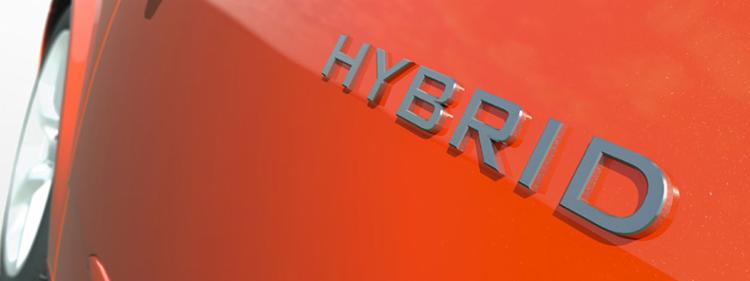How to Buy a Great Used Hybrid Car

Buying a used hybrid is a popular option for car buyers, and this option is growing more popular each year. CBS Money Watch sums it up this way, "Buying a used hybrid avoids the new-car hybrid premium that can take many years to recoup in gas savings. And yet you still get the environmental benefits – both high gas mileage and low emissions of climate-affecting greenhouse gases and other pollutants."
It's hard to justify paying $8,000 to $20,000 extra for a new hybrid when there are more than 400,000 used models on the market these days. But how do you know when you've found the used hybrid that's right for you?
For some people, no hybrid is the right hybrid. These cars sell at higher prices, drive differently and require different upkeep from regular vehicles, and, for some people, that's a deal breaker. If you are looking at hybrids because you value living green and keeping your carbon emissions low, a hybrid might not be the best way to accomplish your goals.
How Stuff Works blogger Patrick E. George notes that hybrids still run partially on gasoline, plus the lithium or NiMH battery packs that power hybrid cars create an entirely separate carbon footprint. George writes, "The batteries inside hybrid cars depend on materials like lithium and cobalt.
Mining for those minerals is an extremely destructive process, and one that has left entire mountains leveled in their wake." George recommends a small, used diesel car as a viable option for those who wish to make the tiniest environmental impact possible. Depending on how you drive, however, a hybrid might make a smaller dent in global carbon emissions than any other option. Most hybrids feature an electrical drive that shifts from electric power to gasoline around the speed of 30 mph.
They also feature an automatic shutoff and startup feature for stop and go traffic, which further saves on fuel. So if you do most of your driving within city limits at low speeds, your car will only need to burn enough gasoline to keep the battery pack charged and to bring you up to higher speeds when necessary. Just make sure you're covered with an affordable car insurance policy.
The following are some of the best reasons for and against buying a used hybrid.
Top Reasons for Buying a Used Hybrid
- Save money on fuel.
- Produce lower emissions than other cars.
- Get a hybrid for the price of a newer gas-only model.
- Avoid a huge initial depreciation hit on a new hybrid.
- Deal with less wear on brake pads and transmission than gas-only models because of the electrical drive.
- Battery pack usually has a warranty of 100,000 to 150,000 miles.
Top Reasons Not to Buy a Used Hybrid
- Similar gas-only models are much cheaper, and some offer great gas mileage, such as a Toyota Corolla in place of a Prius.
- Battery replacement prices range from $1,700 to $4,900, depending on the model.
- Hybrid cars sometimes feel less responsive or less powerful than gas-only models.
- Parts and mechanics for hybrids can be hard to find in some areas.
- Earliest models of some cars can be buggy, such as the first line of the Toyota Prius and the 2007 and 2008 Honda Civic Hybrids.
Issues To Consider When Shopping for Used Hybrid Cars
Battery life: Depending on the state you live in, most hybrids are required to carry a warranty on the main battery pack of between 100,000 and 150,000 miles, at least. Now that the first hybrids are aging into their teens, these battery packs have proven their longevity.
But the reliability of each car's battery depends, in part, on whether the hybrid received regular maintenance. Make sure to check service records thoroughly before you buy to ensure the car received proper maintenance. As long as the mileage is low, around 30,000 to 40,000 miles, you should still get plenty of life out of the battery pack.
Battery replacement: Not all hybrid battery packs are equal. Replacing the battery pack on a Honda Civic Hybrid, for example, will only cost you around $1,700. Compare that with the battery pack on a Nissan Altima Hybrid, which will cost almost $5,000 to replace. If you only plan to keep the car as long as the warranty lasts, this should not be an issue for you.
Driving experience: If you have never owned a hybrid, make time for a lengthy test drive before you buy. Jon Voelcker advises, "Make sure you drive it in all electric mode, and make sure you drive it in the mode where you're accelerating. Notice that the gasoline engine isn't necessarily rising in tone in the same speed that your speed is going up on the road.
It modulates between the battery pack putting energy into the wheels, and the engine putting energy into the wheels, and they can trade off between those two." The steering is also different from that of a gas-only vehicle. Since electric motors usually control the steering, the car may feel less responsive than what you feel comfortable with.
A Used Hybrid Is Still a Used Car
Besides the extra considerations unique to hybrid cars, all the usual details of a thorough car inspection still apply. Edmunds recommends that you find a certified hybrid car mechanic to look the car over before you buy. And as with any used car purchase, it's a good idea to find out everything you can about previous ownership, accidents and service records.
The Most Reliable Used Hybrids Available
If you are in the market for a hybrid SUV, you may have more difficulty than someone who is looking for a sedan. The hybrid SUVs on the market are still relatively new. Some began as California natives, only to move east in the past year. The easiest to find and the one with the best track record so far is the Ford Escape Hybrid SUV.
As for sedans, both Edmunds and CBS Money Watch recommend the Honda Civic Hybrids, except the ones from the years 2007 and 2008, which needed software patches to fix electrical motor problems. The other top choice, and most prolific, is the Toyota Prius Hybrid. It is best to find a model from 2004 or later with less than 50,000 miles if you plan to keep it for more than a few years.
Once you've done your research and shopped around for the best deal on a used hybrid, you can buy with confidence and feel good about the money and clean air you saved as a result. You can also conserve your funds on car insurance when you find an independent agent to cover your SUV, sedan, or whatever hybrid type works best for your family.
